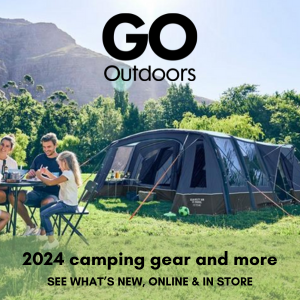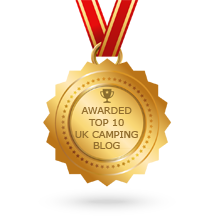WELLBEING | Thoughts On Managing & Challenging Anxiety When Living Outside of My Comfort Zone
This isn’t an article featuring tips on handling anxiety, more a personal musing on my own anxiety and fair warning too, it’s pretty long, though I hope not too rambling!

Although I’m fairly adventurous I have an exaggerated anxiety response, even to seemingly mild stressors. Things I’m good at, things I enjoy and even some things I’ve done over and over again, can still fill me with anxiety.
Just over 20 years ago, as well as suffering from depression, I was also diagnosed with Generalised Anxiety Disorder. Rather than the diagnostic labels empowering me however, I felt like they trapped me.
After a few years of living a much smaller life, I realised I had a choice to make and that diagnoses or not, my mental health was pretty much up to me to take control of and that there were no magic cures (though at that time medication did offer me some relief, I never saw it as a long-term solution) so that’s when I started on my long journey back to taking greater control of my mental health and getting off meds for good.
I am in no way anti-meds; they can be hugely useful and indeed vital in some cases, but for me personally, I felt like I needed to tackle the underlying causes and to find more holistic ways of boosting my mood and bolstering my resilience.
Although I’m now medication-free and largely stable and well, I do still have that extremely exaggerated anxiety response and sometimes it can overwhelm me and this is particularly true since entering perimenopause. Some days really do feel like an uphill battle.

What Anxiety Is Like for Me
Nerves before doing things that we perceive as stressful are of course normal, but for one reason or another (perhaps by now, the well-worn neural pathways I’ve created over more than 2 decades aren’t helping), I still feel that I have an unusually excessive anxiety response.
Unable to concentrate, my stomach churning and in knots, shaking, irritable, unable to eat, sleep or even go to the loo – symptoms I’m sure many with anxiety will be able to identify with.
Instead of mild nervous excitement and butterflies, I can find myself feeling wired and jittery as cortisol courses through me. Unable to concentrate, my stomach churning and in knots, shaking, irritable, unable to eat, sleep or even go to the loo – symptoms I’m sure many with anxiety will be able to identify with.

The tricks I learned during CBT combined with breathing meditations help me a little, but only to a point.
I’m now able to identify how I’m feeling at least, which can stop me spiralling into a full-on meltdown, but it doesn’t really ease the anxiety and no amount of rationalising or logical self-talk seems to stop that unwelcome jittery cortisol rush and churning sick feeling of dread that for me, can last for several exhausting days on end.
My natural desire to disrupt and live life in full colour, combined with my stubborn streak compels me towards anxiety-inducing situations like a moth to a flame.
You might think then that knowing I react this way to certain stressors, I’d attempt to minimise my exposure to the situations I know can make me anxious, but quite the opposite is true.
I’m not sure I ever truly left behind my teenage rebellious phase, but my natural desire to disrupt and live life in full colour, combined with my stubborn streak compels me towards anxiety-inducing situations like a moth to a flame.
Avoidance As A Coping Mechanism Isn’t For Me
I truly believe that avoidance isn’t a particularly healthy or ultimately rewarding coping mechanism, Indeed I seem to ascribe to a “feel the crippling, gut-wrenching fear but like a massive idiot, go and do it anyway” school of thinking, so I persist in doing things that I know are likely to cause me anxiety, as conquering them feels like a little personal victory, despite the days of hell I go through beforehand.
It feels like I’m wresting back control, telling my brain to shut up, confirming to myself that if I want to do something, I jolly well will, regardless of the anxiety it will inevitably cause me.

Whilst sometimes my anxiety wells up for no good reason and with no discernable stressor (this is the type of anxiety I find particularly hard to deal with, and seems to largely be associated with my hormone levels, peaking before a period), when it comes to doing stressful things (some of which I could easily say no to or avoid altogether) I seem to actively seek out situations that cause me to feel this way, like some kind of twisted masochist.
Is this constant battle a ‘healthy’ way of handling anxiety? Should I just avoid situations that cause me stress? Would it make more sense for me to be back on anti-depressants? Is exposure to anxiety triggers useful to help minimise future anxiety?
I really don’t know, I’m just tackling things intuitively and honestly, the other option of avoiding things because that’s what my anxiety is telling me to do doesn’t really feel like an option at all.
I don’t want fear to hold me back, I want my life to be as big and as rich as possible and for that to happen, instead of retreating and waving a white flag, I feel like I simply have to face my anxiety head-on.
Menopause and Increased Anxiety
More recently since entering perimenopause, there isn’t even an external trigger for my anxiety and that’s what makes it even more difficult to cope with.
When there is no external reason for me to feel anxious and yet my body is on mega high-alert simply down to my ever-fluctuating hormones, I find it even more frustrating and difficult to manage.
Ironically, I had started to feel like I’d finally got my anxiety under control, but menopause has tripped me up and sent me flailing.
Our Comfort Zones Are All Very Different
When I started this blog almost 6 years ago, and I made a pledge to say “yes” to things my anxiety repeatedly told me to say a big resounding “no” to, which lead to me being in countless situations that have left me with insomnia, feeling sick, physically shaking, unable to think straight and with horrendous IBS flares.
Why put myself through this? Simply because I refuse to let anxiety limit my life, and in saying yes, I’ve grown as a person and have to some extent mastered at least one form of my anxiety.
One huge lesson I’ve learned over more than 20 years is that my mental health can be slippery though. I can heal in one area only to have darkness morph and manifest in a different way.
Perhaps all those problems have always been there (it could explain why I was such a hedonistic teenager and abused varied substances as a form of self-medication) and it’s taking all this time to steadily work through them, one by one.
I know a diverse range of people and am lucky to have a large group of friends. Some of whom also suffer from anxiety and other related disorders. Some are medicated, some are not. Some grab anxiety by the horns and do the scary things anyway, others don’t. Which goes to show, we’re all individuals and what works for me might not work for you, and there’s no right or wrong way to do things.
Different Types of Anxiety
Nerves and apprehension, of course, are normal and natural, a physical and psychological response to something perceived as a stressor. I now differentiate between 2 distinct forms of anxiety that affect me.
There’s situational anxiety, that is to say the anxiety I feel in response to an external stressor (any activity or situation I find stressful), and there’s hormonal anxiety, the anxiety created by my fluctuating hormones, that ramps up a week or so before a period. This second type is the one that pushes its way into my head and spreads throughout my body and doesn’t respond to any of the usual strategies that have worked in the past to reduce my situational anxiety.
This lack of control in the face of such intense hormonal anxiety, I feel, is perhaps the greatest mental health challenge I’ve ever faced.
How I Cope With Stressors
I’ve taught myself to let go of expectations and to be OK with simply ‘doing’ instead of focusing on the potential outcomes.
I’ve stopped running endless nightmare scenarios through my head and now reason with an internal shrug that whatever I’m facing “It’ll be fine” and I often think “what’s the worst that can happen?” too, which can have an instantly calming effect when I realise actually, it’s really no big deal and this kind of rationalisation can soemtimes help me deal with situational anxiety.
I am more mindful of how I’m feeling at any given time and with anxiety, I stop, think and analyse. Is there an external source? If there is, cool, I can probably do something about it. Is it hormonal? Not so cool. No amount of meditation or rationalisation will suddenly provide me with the optimal balance of Estrogen, Progesterone and Testosterone!
All I’ve learned to do is hunker down, practice enhanced self-care and wait for it to pass, knowing I’m in for several rough days until my hormones calm down again. I’ve been on HRT for almost a year now and it has helped a little, but not enough.
Solo Snowboarding – What’s The Worst That Can Happen?
If you’re anxious about a job interview (what I regard as an extrenal stressor), when you apply logical reasoning to the situation, i.e. “what’s the worst that can happen?” the answer is “I might not get the job” or “I might say something stupid”, neither of which will kill you.

You’ll move on to the next job interview and the next until you’re successful. In fact, being stressed is helpful in a situation like that as cortisol in small doses enhances performance, making you that bit sharper and even helping you ace something like a job interview.
Why would I feel anxiety about going snowboarding though, something I love doing, I’m fairly good at, have done loads of times before, dream about often and have been known to spend 2 years saving for?!
Given my previous experience of being in the mountains and having faced a medical emergency, my usual rational “what’s the worst that can happen?” actually made things worse.
The mild anxiety most of us feel relating to travel (getting to the airport on time, arriving at the gate before it closes, hoping the accommodation is nice etc.) is entierly normal, but the thought of going away snowboarding recently filled me with what felt like abject panic.

I’m lucky to be part of a wonderfully inspiring community of adventure-seeking outdoor bloggers; some like walking around and exploring cities and parks, some are triathletes or run marathons, some like long-distance hikes and some are full-on adventure fiends.
As someone who camps, does a bit of walking, kayaking, snowboarding and likes the odd adrenaline rush here and there, imposter syndrome can often be strong when I compare myself to those I regard as hardcore adventurers. But then I have other friends who think I’m crazy/brave/stupid for doing some of the things that I do, and would never consider doing anything like that themselves, and whilst comparisons can often be counterproductive, I actually found that it was helpful and made me realise that a solo snowboarding trip wasn’t entirely reckless and actually in the outdoor adventure community, an entirely normal thing to do.
Having this wide range of other experiences and opinions helped me to find perspective. Had I only had the opinions of my immediate friends and family to go on, then going away snowboarding on my own did indeed feel reckless, dangerous and therfore more anxiety inducing, but framed within the experiences and feedback I had from those in the outdoor adventure community, it was an entirely reasonable and exiting thing to do!
Which demonstrates why stepping outside of our own echo chamber can be so very instrumental in helping us find perspective and to grow.
There’s an Art to Not Letting Fear Hold You Back
The solo snowboarding trip I worried I might be reckless for considering (especially after various other group snowboarding holidays I’d been on which resulted in numerous injuries), now felt like it wasn’t quite as crazy aand it felt more like a liberating adventure.
I’ve been overseas to Morocco, Egypt and to Europe on my own and I frequently spend time travelling up and down the UK alone. Doing things on my own doesn’t phase me at all any more (though the first few times It did!), so it wasn’t the solo travel aspect that was cuasing anxiety, it was the fear of something going wrong in the mountains and being on my own that still niggled.
Now in my mid forties, I’ve been snowboarding since my mid-twenties and have snowboarded in places like Morzine, La Thuille, Cervinia, Sestriere, Fernie and my favourite, Whistler in Canada.
I’m actually a pretty decent snowboarder, not great, but a decent intermediate. I still get flummoxed by dreaded flat bits and still occasionally get off chair lifts and fall into a heap. Despite this, I’m proficient on black runs and even breaking my back snowboarding a few years ago hasn’t put me off, though it has slowed me down a little!

Despite my best efforts I’m not brilliant at mountain navigation, which is one of the reasons why in the past I’ve tended to return multiple times to the same ski resorts as I’ve got to know the mountains there, Whistler in Canada for example and I know the runs there well.
Flow is that lovely, often elusive state you can find yourself in when doing something completely absorbing and/or pleasurable.
I’ve pondered over why my mountain navigation skills aren’t great and believe the reason in part at least, is that when I’m snowboarding I’m experiencing that wonderful feeling of flow.
Flow is that lovely, often elusive state you can find yourself in when doing something completely absorbing and/or pleasurable. We are immersed there in the present moment, fully enjoying it without any of the usual thoughts and worries of a busy mind that can so easily distract us.

When I’m in this state, totally absorbed by the physicality of snowboarding, the sheer joy of being in the mountains, it’s like part of my conscious brain switches off, I’m on a high, and having to engage my logical brain to figure out what to do when I suddenly find the run I’m on is about to split into 3 and I can’t see any clear signs or piste markers, isn’t something I’m great at.
The Reassuring Safety Net Of Other People & The Role of Our Peer Group
In a group, being a bit crap at navigation isn’t such an issue. There’s always one of us that knows where we’re going but knowing I’d be on my own, with no backup up is what felt scary.
When I mentioned this in a Facebook post, a friend pointed out that as long as I head down the slope, it’s all good. Of course, thinking purely logically that’s absolutely true, but framed within some of the sketchy experiences I’ve had, it’s not quite as simple as that.
Danger or Closed – Which Option Would You Choose?
Snowboarding in Cervinia once with my sister, about 2/3 of the way down the mountain we suddenly came to an abrupt stop in front of 2 huge signs as the run split into 2. In one direction there was a big red sign that said “CLOSED” in the other direction a big red sign said “DANGER”. We stood baffled, totally alone on the run, trying to work out what the hell to do.

There were no chair lifts in sight, from the piste map we couldn’t work out where we were and taking off our boards and walking back up a slope we’d already spent a good 20 minutes boarding down wasn’t an option.
We decided “CLOSED” was our best bet and took off our boards and spent nearly an hour walking down the closed almost snowless piste to reach the bottom. This isn’t the sort of thing I’d want to happen on my own!
Another time whilst snowboarding in the most insane powder I’ve ever come across in Sestriere in Italy, we were in full white-out, utterly disorientating conditions.
I veered very slightly off the piste on the way down (without realising as I couldn’t see), and found myself, just a metre or 2 away from the marked piste but unable to move, up to my waist in snow. It was frankly terrifying, but thankfully my daughter who was boarding close behind me came to a stop on the edge of the piste, took off her board and edged her way towards me. Lying flat and reaching out to help me dig and compact snow around me so I could heave myself out, It took us a good 20 minutes of hard work to get me out and we were both shattered by the end of it.
Add to this a broken back and breaking several ribs multiple times whilst boarding and having to be stretchered off the mountain, a huge fear of drag lifts as with my back injury they are seriously painful for me to use, and I guess it’s understandable why I might be a little anxious about snowboarding alone on a mountain I don’t know in a country where I can only cobble together enough of the language to buy a meal in a restaurant.
Before booking, I asked fellow outdoors bloggers whether they thought snowboarding alone was dangerous or not, and the general consensus was no, as long as I was careful to go for it. It was interesting however when I asked close friends and family the same question, most of their responses were the exact opposite, telling me they thought I was crazy.
These polar opposite opinions proved extremely useful and eventually convinced me to go for it and I had the most amzing time!
I see my mental health as an ongoing project, one that constantly finds new ways to challenge and trip me up, but I don’t let it hold me back. I may sometimes feel like I’m not fully in control of my mind, but I am in full control of my life and I refuse to let anxiety rule me.

How Do You Handle Anxiety?
I’d love to know how you handle self-doubt and anxiety. Do you suffer from different kinds of anxiety and are you aware of your triggers?
How do you feel about solo travel, have you ever done it, or would you do it given the chance? If not, why not? Would you ski or snowboard alone, or have you done it in the past? Perhaps you never seem to worry about anything much or you experience anxiety in a markedly different way?
Please leave a comment below!
Struggling with your mental health? Support is available
- Find out your good mental health score
- Mind for better mental health
- NHS How to access mental health services
- Time to change
- Mental Health, Depression, and Menopause
Where to next?
- Exploring The Benefits of Walking Meditation
- How I Rebuilt An Active Outdoorsy Life In The Face of Chronic Pain & Depression
- How To Have A Tech-Free Family Camping Break
- WELLBEING | Witches Whispers From Routin Brig Waterfall, Scotland - April 25, 2024
- TRAVEL | The Little Coffee Bag Co. Delicious Coffee On The Go – Review - April 16, 2024
- NEWS | Easy Glamping With Easy Camp New Moonlight Spire Tipi Tent - April 15, 2024



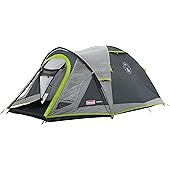





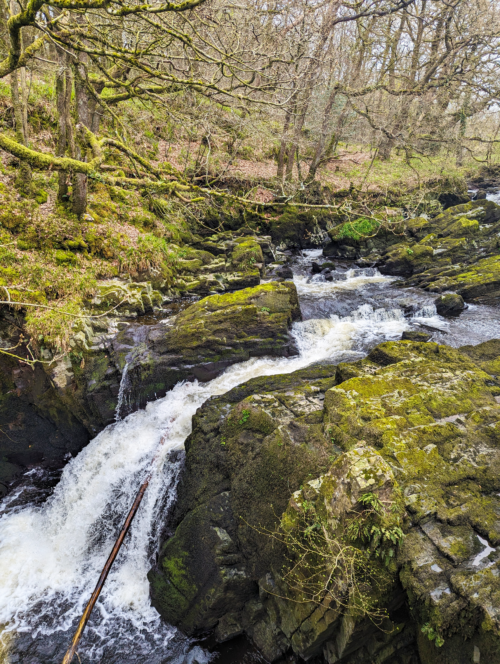
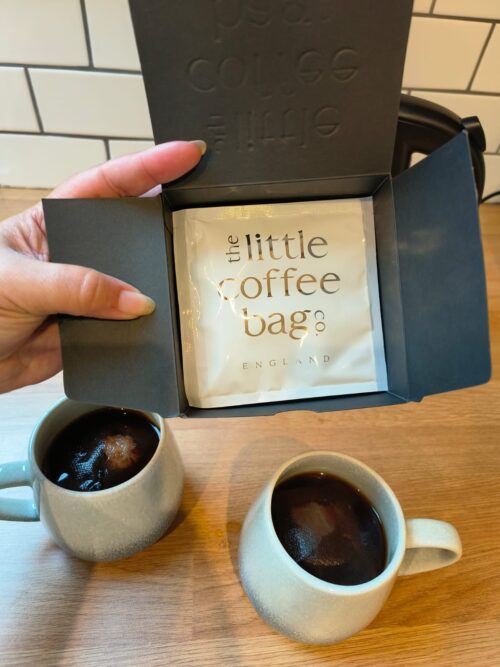



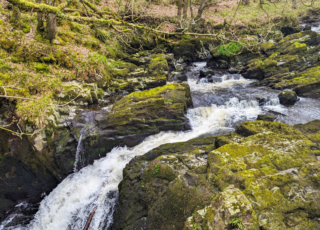

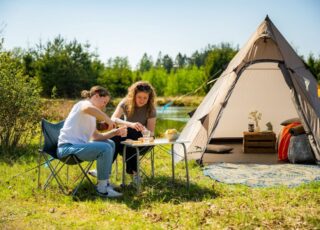
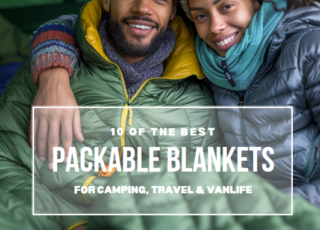
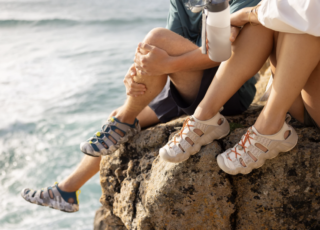
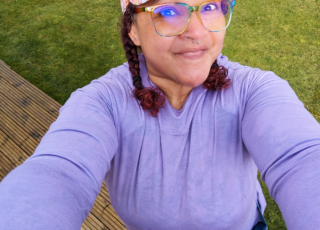
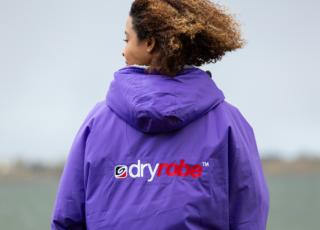
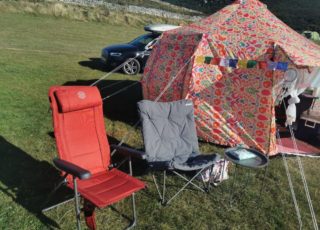
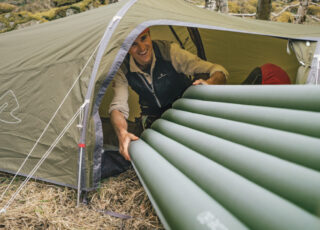
![CAMPING | Here’s How To Stay Warm In Your Tent – Warm Camping Tips [Updated 2024]](https://www.campingwithstyle.co.uk/wp-content/uploads/2024/02/shell0816_photorealistic_realistic_photo_of_the_inside_of_a_c_dd26c3c4-c779-4081-85b0-72e66a81b03b_1-320x230.png)
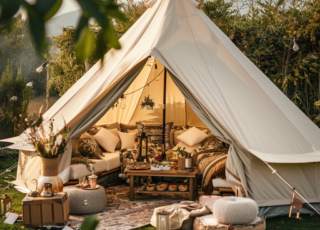
![GEAR | The Best Warm Sleeping Bags For Spring Camping Trips [Updated March 2024]](https://www.campingwithstyle.co.uk/wp-content/uploads/2024/02/10-best-warm-sleeping-bags-2024-320x230.png)
